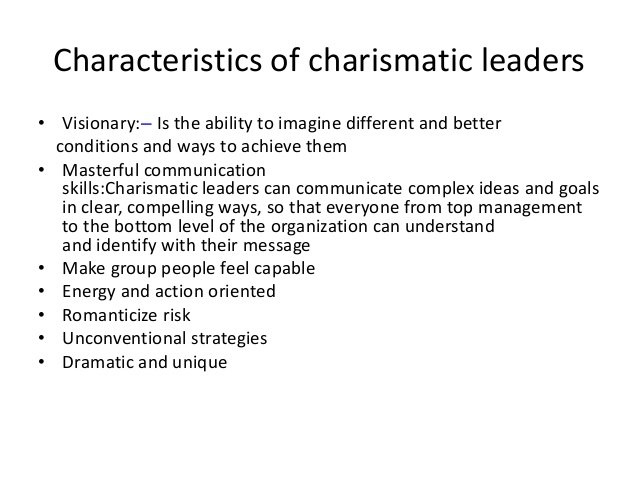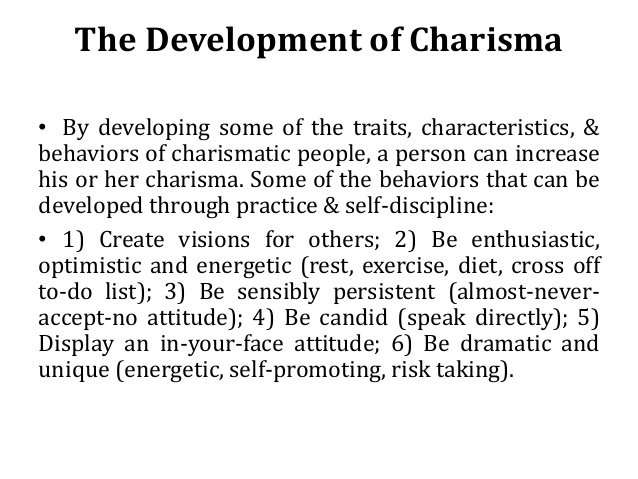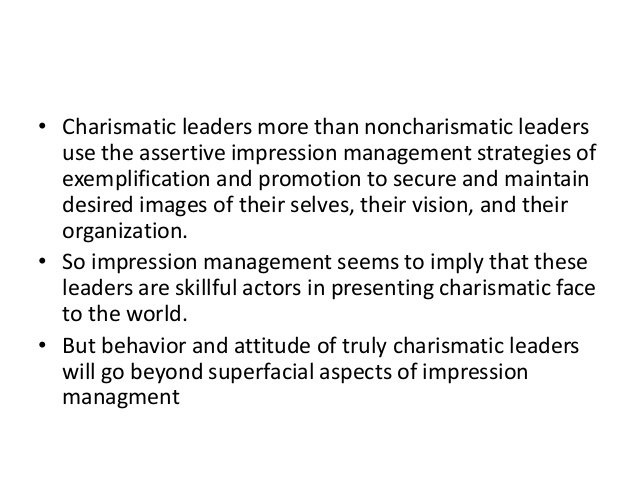Charisma
Charisma is Greek word means “divinely inspired gift”. In general use it means charming and colorful personality.
According to Weber, charisma occurs when there is a social crisis, a leader with exceptional personal qualities emerges with a radical vision that provides a solution to the crisis and attracts followers who believe in the vision and perceive the leader to be extraordinary.
Types of charismatic leaders
Charismatic leaders can be catagorized into five types
- Socialized charismatic’s
- Personalized charismatic’s
- Office holders charismatic’s
- Divine charismatic’s
1. Socialized charismatic leaders
- A socialized charismatic leader is the one who restrains the use of power to benefit others
- They try to bring group member value in line with his or her own values
- They formulate and pursues goals that fulfill the needs of group members and provide intellectual stimulation to them
- Their followers are autonomous, empowered and responsible
-
Personalized charismatic leaders
- Such individuals primarily serve their own interests and exercise few restraints on their use of power
- They impose self serving goals on their constituents and offer consideration and support to group members only when it facilitates their own goals
- Their followers are typically obedient, submissive and dependent.
-
Office holder charismatic
For this type, the leadership is more a property of the office occupied than of his or her own personal characterics.
They attain high status by holding a valuable position in organization.
-
Divine charismatic leadership
In 1924 Max Weber defined charismatic leadership as mystical, narcissistic and personally magnetic savior who would arise to lead people through crisis



